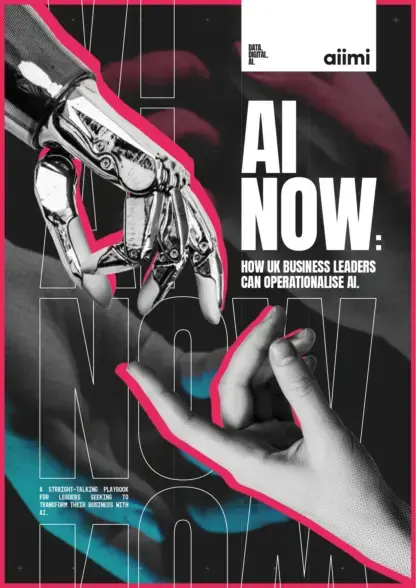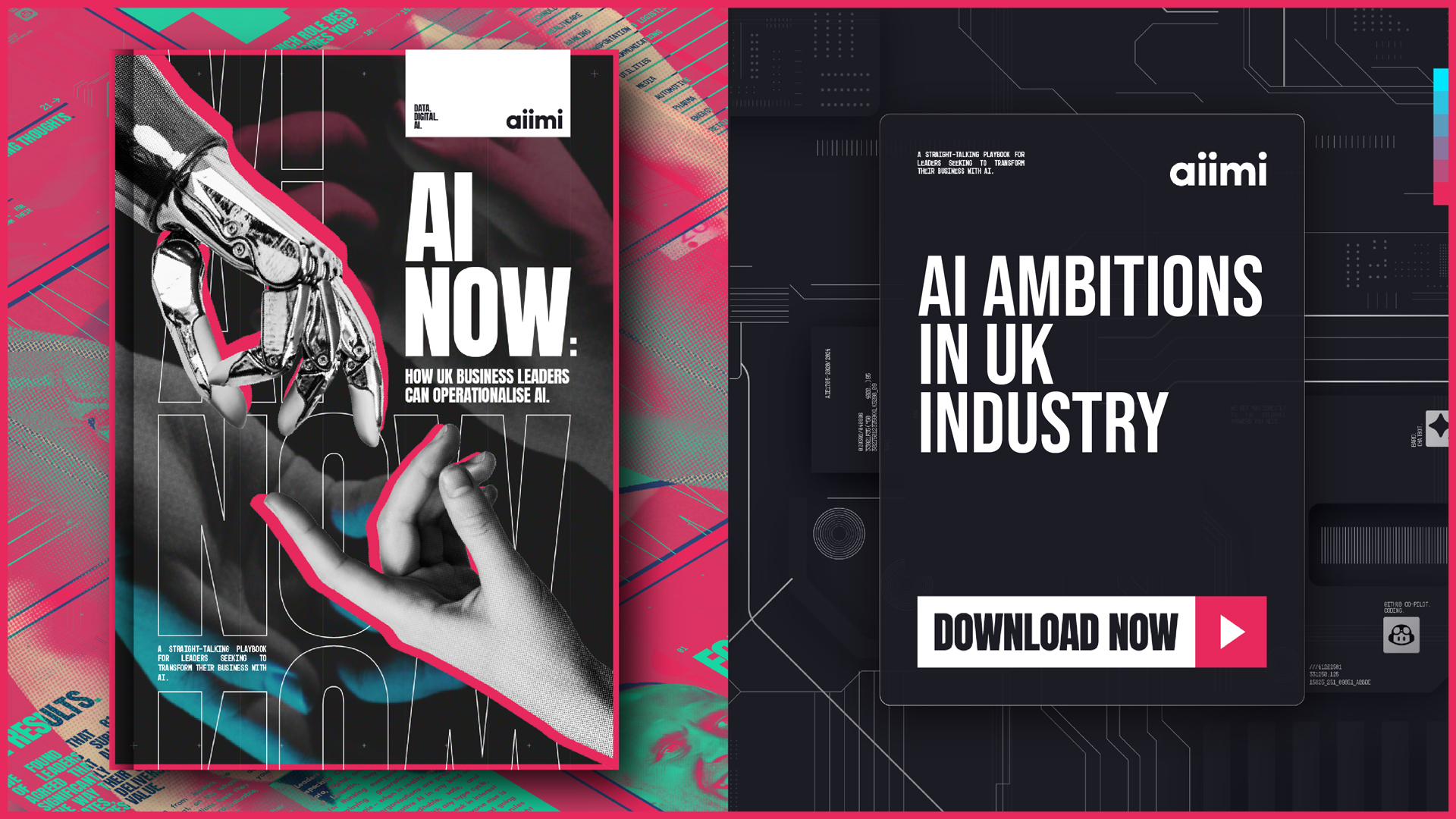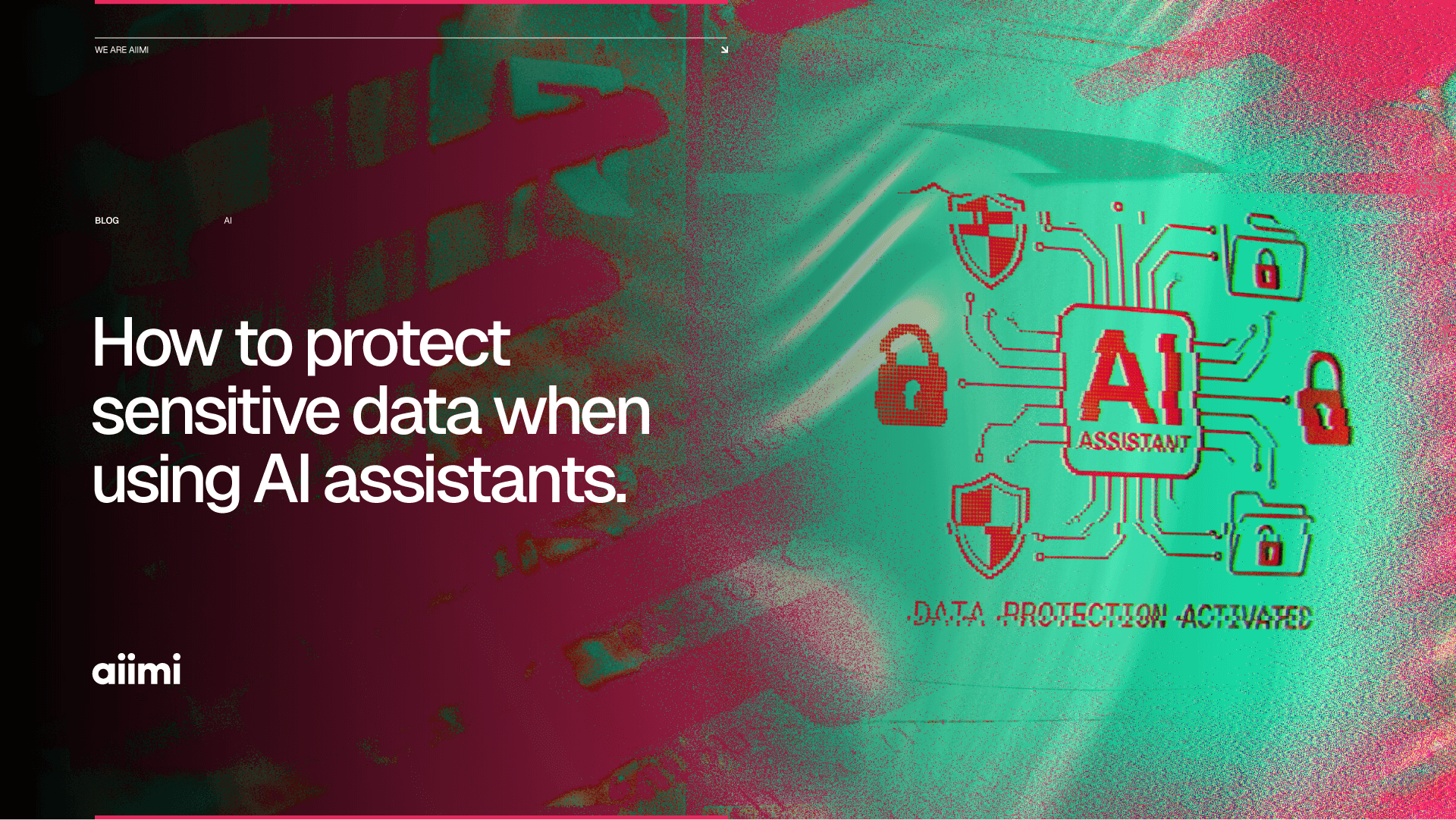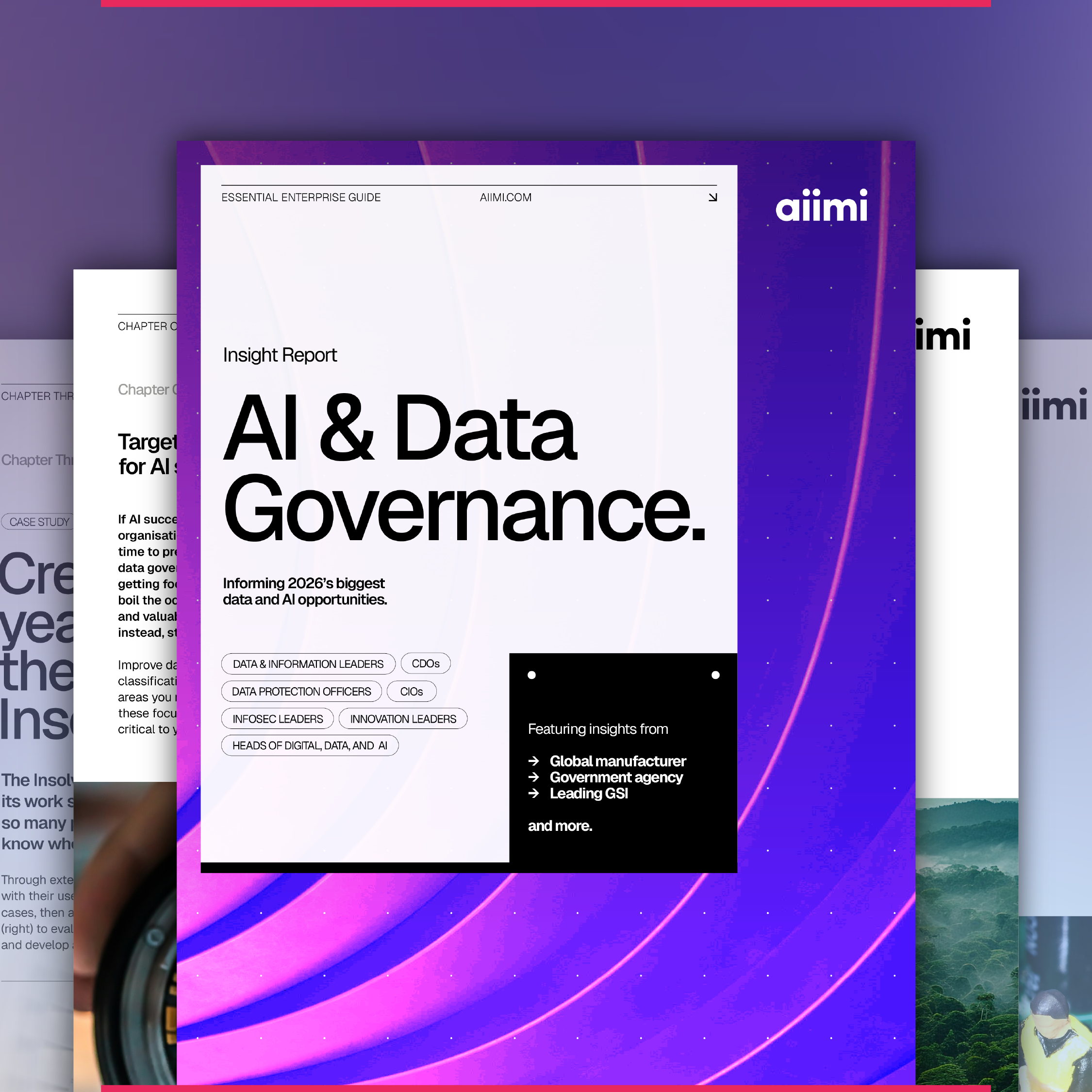AI in business: goals, roles, and the future
What’s the role of AI in business in 2024 – and beyond? Learn how operationalised AI can transform processes and outcomes across the enterprise.
Every information leader is under pressure to bring AI to their business. As organisations transition from exploring the possibilities of artificial intelligence to fully adopt AI into their business operations, it’s clear that AI in business has the potential to positively impact every team, in every company - from improving customer experience, to driving innovation. We’ve surveyed UK business leaders to find out how they’re getting value from AI, what’s holding them back, and what’s next on the AI agenda – you can download the full report below. But first, what exactly do we mean when we talk about using AI in an enterprise organisation?
Types of AI in business
When thinking about enterprise AI, it’s important to remember that AI in business doesn’t just mean ChatGPT-style AI; different types of AI should be used to support different use cases and bring different business benefits. Types of enterprise AI tools include:
Machine Learning and Predictive AI Extractive AI
Generative AI and Retrieval Augmented Generation (RAG)
Large Language Models (LLMs)
Small Language Models (SLMs)
Natural Language Processing
Artificial Intelligence: role in business
The main goal of using AI in a business setting is to augment and extend the capabilities of humans – to do things we couldn’t or wouldn’t do without enterprise AI. So, what are the key objectives for using AI-powered tools in the workplace?
To deliver insights that drive value
To automate business processes and decisions
To increase productivity and efficiency.
We know the use of enterprise AI will vastly improve productivity around a wide range of low-value activities – and when you adopt AI to do this at scale, the gains and savings become game changing.
But looking beyond efficiency and productivity, where are the next biggest opportunities to adopt AI in an enterprise organisation?
Future of Artificial Intelligence in business
CIOs and CDOs should look for value-driven use cases to operationalise AI, so the business can start to demonstrate the value of AI straight away, fuelling further motivation and investment for AI in business.
AI for Business Intelligence (BI) offers one of the prime ‘fast-start’ use cases of generative AI. Business intelligence reporting is only as good as the data you feed it – and while BI dashboards thrive on structured data, the typical enterprise is made up of up to 90% unstructured content. This is where Generative AI and LLMs come in, making the task of ‘structuring the unstructured’ faster, simpler, and more cost effective.
One of the challenges facing AI adoption is data quality, as AI relies on high-quality data input. Fortunately, AI can also be used to measure and improve data quality factors such as accuracy, completeness, and overall data integrity. Essentially, enterprise AI can spot gaps in vast amounts of data and fill them; it can spot anomalies or possible inaccuracies and help fix them, automating and expanding the benefits of data governance at scale.
In this way, AI in enterprise organisations can also be used to power and automate Data Governance – discovering, cleaning, labelling, and making sense of data at scale, so it can then be fed into AI models to deliver valuable outputs.
The future of AI in business will improve processes and outcomes across the enterprise; as AI capabilities continue to evolve at lightning speed, so will the potential use cases of generative AI and other enterprise AI tools. Using RAG and Generative AI capabilities across the entire data estate, rather than limiting it to just one corporate system’s data, will extend productivity gains even further.
To overcome AI implementation challenges, business leaders need to approach enterprise AI with clear goals, identify specific AI use cases for maximum impact, and improve data quality and governance as a parallel track to operationalise AI at scale.
Read our survey report to find out how UK enterprise leaders are using AI technology today, and watch our video to see Aiimi CEO Steve Salvin and CTO Paul Maker discuss where the most common challenges lie for AI in the enterprise.
Contact us for a free ‘Ask the expert’ session and let our AI strategy consulting team answer your urgent questions about adopting AI at enterprise scale.
Download the full report


Share guide with your network.



